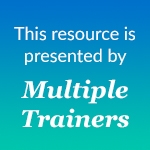

Search Results: feelings
-
Yoram Mosenzon explores the core NVC principle that others do not cause our feelings—our interpretations and unmet needs do.
-
Sylvia teaches emotion management, connecting feelings to needs, and "Screaming in Giraffe."
-
Print-and-cut these 56 feelings cards for one-on-one, partner or group activities, to help support the pratice of empathy. Includes eight blank cards for you to customize.
-
Ask the Trainer: The link between storytelling, being "right," and connecting to an unmet need.
-
Many of us have been raised within a right/ wrong culture. From very young ages, we are asked, "What is wrong?" Yvette Erasmus shares a different view where emotions can be seen as expansion and contraction, where they can help us identify our needs.
-
Feelings and Needs form the cornerstone of Nonviolent Communication (NVC), offering a profound framework for cultivating empathy, compassion, and authenticity in our interactions. This comprehensive 9-page Feelings and Needs Reference Guide is designed to support you in integrating these vital concepts into your daily life.
-
Feelings and Needs form the cornerstone of Nonviolent Communication (NVC), offering a profound framework for cultivating empathy, compassion, and authenticity in our interactions. This comprehensive 9-page Feelings and Needs Reference Guide is designed to support you in integrating these vital concepts into your daily life.
-
These downloadable cards are graciously offered to help busy parents who want more time and less struggle.
-
Trainer Tip: Love can be both a feeling and a need in Nonviolent Communication. It can be seen as a need if we do something to meet our need for love. We can also experience love as a feeling, just as warmth, affection, and excitement are feelings. Often, but not always, we can feel love and meet our need for love at the same time.
-
In this enlightening Trainer Conversation, three veteran CNVC Certified Trainers discuss whether NVC can be learned without first learning Observations, Feelings, Needs, Requests (OFNR). The conversation naturally meanders as the trainers grapple with the question, eventually covering a wide-range of topics including the spirituality and true essence of NVC.
-
Ask the Trainer: Is it a good idea to use NVC on persistent guilt, anger or depression without the aid of others?
-
In this intriguing audio, Jim and Jori Manske create a framework for growing your feeling awareness, and offer daily practices for working with your feelings. Listen to this audio if you’d like to expand your emotional vocabulary!
-
See the 4 NVC steps reframed in everyday workplace language.
-
Join Dian Killian as she reframes the 4 steps of NVC (observations, feelings, needs, requests) into everyday words you might hear at work.
-
Mediating a conflict conversation can be challenging – but with tools and practice, that challenge can be transformed. If you're curious about the specific steps needed to achieve that transformation, join John for an exploration of his non-dual mindfulness practice.
-
When you experience an emotion, your body send a message to your brain that lights up the amygdala. Then what? Listen as Sarah Peyton demonstrates the NVC practice of Naming the Feeling and Need, which calms the amygdala and enables you to move into relational space.
-
Anger, guilt, shame, and shutdown are often based on reactivity and “should” thinking. They narrow and distort perceptions, which can bring more suffering. So instead, feel them without resistance, nor acting on them. Bring clarity by naming your observables and thoughts, plus your underlying vulnerable feelings, needs and self-responsibility. Then mourn what needs were, or are, unmet. Only then choose what actions to meet needs.
-
-
-

Quick Links
Subscription Preferences
Stay In Touch!
Looking for ways to keep up with NVC Academy news, get special offers, free resources, or words of inspiration? Here are five ways to stay engaged:














